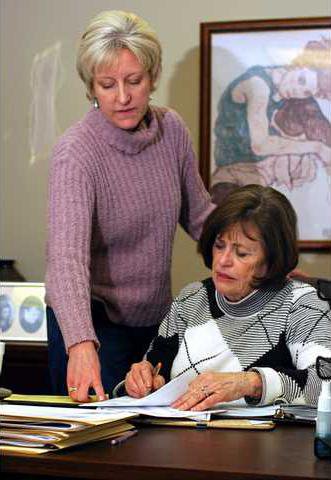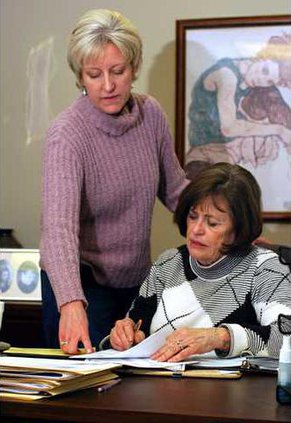When she started, her ideas were radical.
Nearly 20 years later, she is hailed a visionary.
On the cusp of her retirement, Terri Strayhorn, executive director of Rape Response Inc., is able to look back over her career and see how much progress has been made for the victims of rape in Northeast Georgia.
"In the beginning, women were not treated well when they reported rape," Strayhorn said. "They were revictimized by the folks that were supposed to be there to help them."
In the early 1980s, Gateway Domestic Violence Center began offering a rape crisis hot line.
By 1989, the line was getting so many calls that Rape Response was created as a separate organization to handle the need.
Strayhorn volunteered with the organization before taking over as the executive director a few years later.
"I started as a volunteer. I just found something I loved to do," Strayhorn said. "It jibed with my interest in women’s issues and a desire to do something proactive."
But she never thought she would lead the organization for 18 years.
"For me, it was a Cinderella story in that it shouldn’t have been, but so many people wanted this to work," Strayhorn said. "This was not a job I had either the education or experience for, but they said you have the passion for it. We’ll help you with the other stuff."
Strayhorn says much has changed for the better in her years with Rape Response. She puts it all in perspective by reminiscing about her first office.
"When I started at Rape Response in 1992, I had an IBM Selective typewriter," Strayhorn said. Strayhorn said at first, Rape Response had an adversarial relationship with law enforcement and health care professionals who were worried that the advocates would get in the way of investigations.
"We started with that kind of demand for attention for services," Strayhorn said. "This was during the height of the women’s movement. There was an awful lot of resistance to the whole idea of equality, and we were challenging the status quo."
But with time, Strayhorn built relationships with public safety, medical and judicial agencies that learned to trust the work of her organization.
"Once you’ve laid that foundation that there’s a need, you have to start working with people instead of against them," Strayhorn said.
Lt. Carol Martin of the Gainesville Police Department said the partnership has been positive.
"That whole organization has always been so helpful to us," Martin said. "They let us do what we need to do, and they’re doing what they need to do to make the victim feel better."
Now, Rape Response facilitates a Sexual Assault Response Team, an alliance of professionals who meet periodically to review sexual assault cases.
Pat Parris, a registered nurse who serves as one of Northeast Georgia Medical Center’s sexual assault nurse examiners, said SART is a progressive program.
"(Strayhorn) was a pioneer in the state and in the nation in developing a SART team before it was standard," Parris said.
Parris said the group meetings are the key to looking at sexual assault cases more holistically. She said each agency is like a piece of a puzzle, working on a different part of each case.
"Without each one of us, the picture would not be whole," Parris said.
Strayhorn said something she is especially proud of is Rape Response’s preventative education program. The curriculum was developed in 1994 after it was realized that a large number of the victims served by Rape Response were between the ages of 13 and 15.
"We needed to tackle this with younger kids," said Dana Chapman, director of victim services for Rape Response, who taught the preventative course for years.
The interactive three-day program is taught to both male and female students in the eighth grade.
"In the beginning it was a shocking thought that we wanted to teach it co-ed," Chapman said. "The whole point is the way we stop rape ... it’s about male and female people communicating better, so of course it’s a co-ed curriculum."
Today, Rape Response Inc. is stronger than ever, providing numerous services to victims to carry them through every step of their journey, from reporting the rape through criminal trial.
"Now we serve somewhere around 420 to 480 victims a year in the five-county area, the majority of which are in Hall County," Strayhorn said.
Chapman said Strayhorn has set the tone for the organization, teaching that rape does not ruin a woman’s life; it is a part of her character, not her identity.
"Just because a woman has been raped doesn’t mean she’s disturbed, it doesn’t mean she’s a patient," Chapman said. "That’s been one of the things Terri taught me. And it’s so important; it’s important every day."
Strayhorn said the organization is in a good place to leave in the hands of someone new.
"I think we are where we should be right now, but I think there’s a lot of opportunity for new ideas,"
Strayhorn said. "I want to see it go to the next stage ... but it’s not with me."




